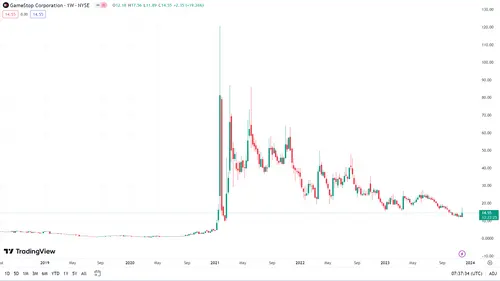Our partner, XM, lets you access a free demo account to apply your knowledge.
No hidden costs, no tricks.

The capital markets can be home to numerous lucrative opportunities at any given moment. Investors and traders alike rush to take advantage of market opportunities and generate attractive returns.
However, while this generates buzz on the market, it can also bring about a sense of anxiety among participants, or the fear of missing out.
The fear of missing out, or FOMO for short, is a common psychological factor on capital markets that can greatly affect the decision making process of market participants.
This fear often leads to impulsive and emotionally-driven decisions, such as hastily buying into a rapidly rising market or stock without conducting thorough research or analysis.
Traders affected by FOMO may disregard risk management principles and rational decision-making, chasing market trends without a clear strategy.
This behavior can result in significant financial losses, as market movements driven by FOMO are often unsustainable and may lead to abrupt reversals.
If you are a beginner trader and would like to know more about what FOMO is and how it affects market decision making, this Investfox guide can help.
FOMO stands for "Fear of Missing Out," and in trading, it refers to the emotional response and anxiety that investors experience when they perceive others making profitable trades or investments, and they fear missing out on potential gains.
FOMO is exacerbated by social media and real-time market information, where individuals witness others' successes, creating a sense of urgency to participate in the perceived opportunity.
Successful traders and investors typically emphasize the importance of discipline, patience, and a well-defined strategy to avoid succumbing to FOMO and making emotionally-driven financial decisions that can negatively impact one's portfolio.
Many cases of FOMO can be observed on the market during major economic events, but are generally exacerbated during earnings releases, when thousands of investors rush to trade the hot stock of the day in fear of missing out on lucrative gains.
One noteworthy example of FOMO happened during one of the most notorious events on the stock market in recent memory, which was the GME short squeeze of 2021, when a stock trading subreddit identified major short interest in GameStop stock and started rapidly buying the stock, driving the price higher and triggering margin calls for short-sellers.
When traders saw the market conditions, many entered the market at already high valuation and held the stock longer with the hopes of further increases. However, no bullish run can last forever and many traders saw themselves taking considerable losses from what was supposed to be the trade of a lifetime.
FOMO can greatly affect the risk tolerance of traders and the GME short squeeze was one of the clearest examples of this happening in practice.

There are a few methods of avoiding FOMO while trading, which require considerable restraint and discipline on the part of traders.
The market may swing wildly in either direction and FOMO can lead to more losses than gains. To avoid this, here’s what you can do:
Our partner, XM, lets you access a free demo account to apply your knowledge.
No hidden costs, no tricks.
Yes, FOMO can lead to significant losses in trading. It prompts impulsive decisions, neglect of risk management, and chasing trends, often resulting in entering positions at unfavorable prices and experiencing financial setbacks.
To avoid FOMO in trading, stick to a well-defined plan with entry and exit points, practice discipline and patience, and implement robust risk management. Avoid impulsive decisions driven by the fear of missing out to make informed and rational choices.
Yes, FOMO is highly risky in trading. It can lead to impulsive, emotionally-driven decisions, neglect of risk management, and chasing unsustainable market trends. This behavior often results in financial losses as traders act without a well-defined strategy.